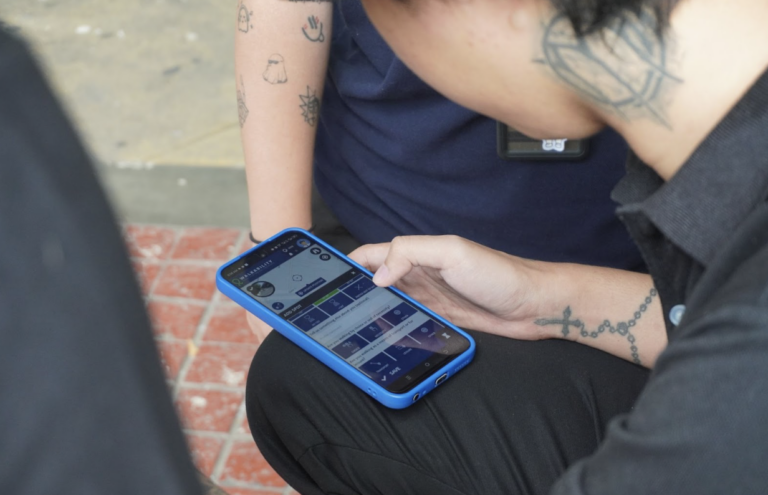How an online platform is providing 6000 cities with data and circular solutions
This blog was originally published on the ICLEI Circulars website and written by ICLEI’s Circular Development team and Circle Economy.
After a year of development and piloting, the Circle Lab for Cities program is proud to announce the launch of Ganbatte – the first online platform providing key data insights and proven solutions on circular economy for more than 6000 cities worldwide.
Ganbatte: A digital platform supporting the planning of practical circular economy solutions at local level
Ganbatte aims to provide every city with the necessary data, knowledge and tools to achieve their climate goals through the circular transition. Developed by Circle Economy in collaboration with ICLEI, Ganbatte offers data insights into cities’ sectoral consumption, emissions and employment for more than 6000 cities worldwide and provides them with the knowledge and tools to start their circular journey.
“Cities are leading — and will continue to lead — the transition towards a circular economy through innovation and collaboration. Ganbatte aims to support and accelerate the global transition of cities, by facilitating access to knowledge and insights that inform decision-making and enable cities to learn from each other.” – Jordi Pascual, Cities Lead, Circle Economy

After exploring their city’s data, city practitioners can dive into the interactive Solutions Explorer and navigate through a set of 50 ready-to-implement solutions, illustrated by 705 city-driven case studies.
“We find Ganbatte a very important and interesting tool to guide new strategies for circular economy and sustainability” – Maria Eduarda San Martin, Municipal Secretary of Environment, City of Pindamonhangaba, Brazil.
The Solutions Explorer on Ganbatte is guided by the Circular City Actions Framework, developed within the Circle Lab for Cities program. The Framework introduces cities to a range of strategies and actions available to them as they work towards a circular economy locally – the 5 R’s (Rethink, Regenerate, Reduce, Reuse, Recover). These strategies can be applied to all production, consumption and waste management processes influenced by the city and are most effective when implemented in parallel.
“We have been able to apply circular economy approaches to existing problems within the municipality”, Maria Eduarda San Martin said.
The Circle Lab for Cities program: A unique collaboration between circular economy thought leaders and cities
Over the past year, 11 cities and local governments from five world regions have been participating in the Circle Lab for Cities program, piloting cutting-edge tools that support circular development planning at the local level. This program, funded by the MAVA Foundation, inspired a unique collaboration between the world’s leading organizations in the field of circular economy – Circle Economy, ICLEI, Metabolic, and the Ellen MacArthur Foundation.
“To accelerate the transition to the circular economy in cities, the Circle Lab for Cities program empowers city actors at different stages in their circular economy journey with the information that they need for effective decision making” – Sarah O’Carroll, Cities Lead at the Ellen MacArthur Foundation.
Through the Circle Lab for Cities program, cities have been able to:
- Learn about the circular economy and what it can do for their city,
- Explore their city’s data to identify and match their climate challenges with the right circular solution,
- Act to advance their transition towards a circular economy in priority sectors.
Cities, where production and consumption meet, can benefit greatly from implementing a circular economy. However, it can be difficult for cities to know where to start. Throughout the piloting, Ganbatte has been piloted with cities to provide just that – an entry point to kick-start their circular journey. A core part of the piloting experience for cities facilitated by ICLEI has been the selection of a priority sector by the cities, varying from food systems to the construction sector or mobility systems. After mapping their existing actions and initiatives in the selected sector using Ganbatte’s policy tracker, cities were supported in identifying actions to take to make their chosen sector more circular, inspired by case examples.
“The whole program has been very helpful for the city and the community in determining programs and activities that support the circular economy”– Febby Lestari, Regional Body for Planning and Development in Bogor City, Indonesia.
According to Lestari, “the main challenge we sought to address through the program was to provide education and training for the community in organic waste management”, adding that the program “is very helpful in understanding how we can utilize waste that was initially not valuable, to be processed to generate economic value”.
The learnings and outcomes of the piloting are summarized into circular city roadmaps for each of the cities, which can be explored here.
Ready to start your circular journey?
We invite you, city practitioners, to explore your city’s profile on Ganbatte to learn about what the circular economy can do for your city, and to embark on your circular journey.






